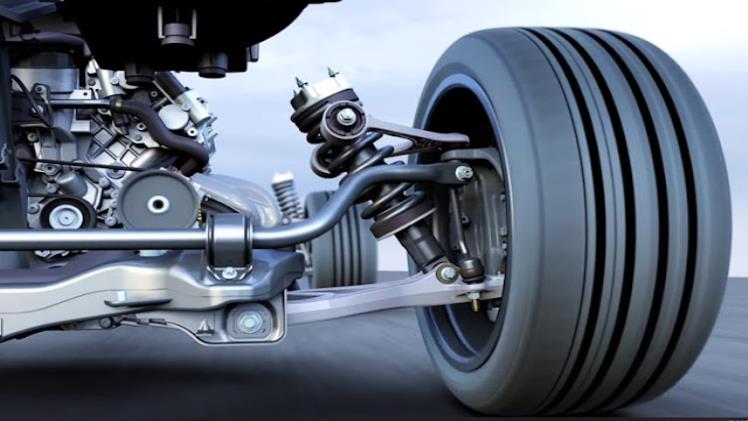Vehicle suspension is an essential part of any car, truck, or SUV. It is responsible for ensuring a comfortable and safe ride while you are on the road. Whether you are driving on smooth highways or rough off-road terrain, having a well-functioning suspension system can make a big difference in your overall driving experience. In this article, we will discuss some of the important things you need to know about vehicle suspension, including its components, types, and maintenance tips.
Components of Vehicle Suspension:
The suspension system of a vehicle is made up of several components that work together to provide a comfortable ride. the Here are the key components of a vehicle suspension system:
- Shocks: Helps absorb the impact of bumps and potholes on the road.
- Struts: Similar to shocks, struts help to absorb the impact of bumps and potholes. However, they also act as structural components that help to support the weight of the vehicle.
- Springs: Designed to support the weight of the vehicle and help to keep it level, even when driving on uneven toonily terrain.
- Control Arms: Part of the suspension system that connects the wheels to the vehicle’s frame. They help to control the movement of the wheels, ensuring stability and control while driving.
Types of Vehicle Suspension
There are several types of suspension systems that are used in vehicles:
- Independent Suspension: Allows each wheel to move independently, providing better handling and traction. It’s commonly used in passenger cars and some light-duty trucks.
- Solid axle suspension: In this type of suspension system, both wheels are connected to a single axle, which can provide better off-road performance and durability. However, it may not be as comfortable as independent suspension, especially on rough roads or uneven terrain.
- Other types: There are several other types of suspension systems, including air suspension, torsion bar suspension, and leaf spring suspension. These are less common but may be used in certain vehicles or for specific purposes.
Maintenance Tips for Vehicle Suspension
Just like any other part of your vehicle, the suspension system requires regular maintenance to ensure that it continues to function properly. Here are some maintenance tips that can help you keep your suspension system in good condition:
- Get regular inspections: Regular inspections can help you identify any issues with your suspension system before they become major problems. Car mechanics can inspect the suspension system during routine maintenance, such as oil changes.
- Check the tires: Your tires can affect the performance of your suspension system. Make sure your tires are properly inflated and have the correct tread depth to ensure optimal performance.
- Replace worn-out parts: Over time, the components of your suspension system may wear out and need to be replaced. This is especially true for the shocks and struts, which can wear out after a certain number of miles.
- Avoid overloading your vehicle: Overloading your vehicle can put extra stress on the suspension system and cause it to wear out faster.
- Drive carefully: Avoid rough roads and potholes whenever possible, and try to drive at a reasonable speed to reduce the impact of bumps and other obstacles.
Vehicle suspension is an important part of any vehicle, and understanding how it works can help you keep your car, truck, or SUV in good condition. Regular maintenance and inspections from car mechanics Leichhardt can help you identify any issues with your suspension system before they become major problems. You can ensure that your suspension system is always functioning properly with a well-maintained suspension system.

